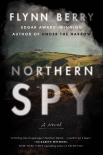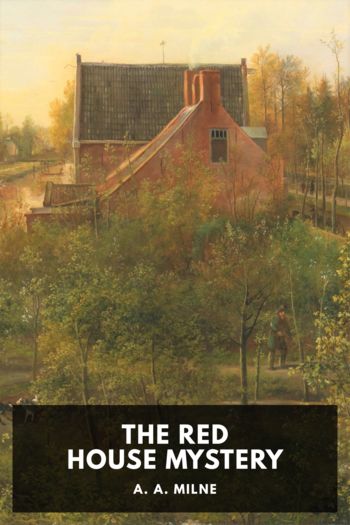Northern Spy Berry, Flynn (books for 9th graders .TXT) 📖

Book online «Northern Spy Berry, Flynn (books for 9th graders .TXT) 📖». Author Berry, Flynn
Marian points at my foot. “Are you okay?”
I look down at the blood, though my skin is still too numb from the cold to feel the scratch. “Are you in the IRA?”
“Yes.”
“Why?”
Marian closes her eyes. I can see their shapes behind the lids, like two marbles.
“I thought you were a paramedic.”
“I am.”
“Is that supposed to balance things out?”
“They asked me to become one,” she says. “They wanted one of us to have medical training.”
The dizziness makes it hard to stand upright. She became a paramedic six years ago. “How long have you been in the IRA?”
“Seven years.”
I stare at my sister. Her face is pale and dry, her lips chapped. “Did you leave a bomb at St. George’s?”
“Yes.”
“You were holding my son.”
Marian bites her top lip between her teeth. “Yes.”
“You’re never going to see Finn again,” I say sharply. “You’re not coming anywhere near him.”
“He wasn’t in danger. It—”
“Shut the fuck up.” I cover my eyes with my hand, then shake my head. “All right, let’s go. We’re going to the police.”
“I can’t, Tessa.”
“Too bad.”
“Let me explain,” she says, and I consider my sister’s tired eyes, trying to decide if I actually want to know anything more. It will only harm me, in the end. From here, I can see the roofs of Greyabbey, sunlight pooling on the slate tiles.
“Where have you been?” I ask.
“South Belfast,” she says, and I let out a sound like a laugh. I was in south Belfast yesterday, desperate to find her, and she was a few minutes away. “In a rental house on Windsor Road.”
“Have you used it before?”
“Sometimes.”
“For what?”
“Meetings,” she says vaguely, and I wonder what might fall under that term.
“Do those people know you’re here?”
“Yes. I told them the truth. I said that I needed to come see you, so you’d know I was all right,” she says, and I look at her in disbelief, wet in my swimsuit, thinking, Is that why you came? Is that what is occurring here?
“Can we sit down?” she asks.
I pick my way over the sand to a small, wooded island exposed by the tide. The lough has dozens of these islands, some small enough to support only a single tree.
Marian follows me. My arms and legs are mottled from the cold, and mascara is smeared under my eyes. The neoprene straps of my swimsuit run over my shoulders and into a low dip at the back. I hate to be wearing only a swimsuit right now, like that makes my fury less serious.
At the island, we climb the driftwood steps and sit on a bench facing the water. Marian smells the same, which is absurd, to think that she has been using the same rose oil over the past four days, in the midst of everything else.
“I thought you’d been abducted,” I say, and she winces. “So did mam. Do you have any idea what that was like? I was out of my mind. You let us go through that, you didn’t even send us a message.”
“I couldn’t, Tessa.”
“Why did you join?”
“Seamus Malone,” she says. It takes me a moment to place the name, then I can see him, a tall man with red hair, standing in a group of his friends at the Rock bar. He always wore a corduroy jacket with a sheepskin collar. “He gave me a book by Frantz Fanon.”
“Who?”
“A Marxist theorist.”
“You barely knew Seamus.” He also went to grammar school in Andersonstown, but he graduated about ten years before us.
“He was nice to me after Adam died,” she says.
“You never told me.”
Marian shrugs. “You were in Dublin.”
I remember when Marian visited me at Trinity, how quiet she was while trailing after me around the galleries in Cabra, the canal where students sat drinking tins, the restaurant on Clanbrassil Street, the party at the Bernard Shaw. She barely said a word.
I’d noticed that my sister dressed differently than my friends, that she looked out of place, and then felt ashamed of myself for having noticed. I’d thought, stupidly, that Marian was intimidated by the larger, wealthier city, or by my friends, who spoke faster than her, wore different clothes, had seen and read different things, when really she’d just been preoccupied. She was already being recruited.
“We talked about Adam,” says Marian. “Seamus would come round to ask how I was doing, if I wanted to go for a coffee.”
Adam had been one of the students in Marian’s upper sixth form. They were both twenty when he took an overdose. I knew they had friends in common, but they hadn’t been especially close. I should have been the one to understand how much his death would affect her anyway, not Seamus.
“He was the only person who would talk about Adam with me. Everyone else pretended the problems didn’t exist.”
I don’t need to ask which problems. Third-generation unemployment, segregated schools, class discrimination, crumbling state housing. All of this money coming into the city from film shoots and tourism, cruise ships, construction, and none of it making its way to west or east Belfast. The game was rigged, the money only going to people who already had it.
“Seamus made me actually think about what it means to still be a colony,” she says. He gave her books about England’s other colonies, and what the empire did in Cyprus, Kenya, India, all the reasons the British flag is called the butcher’s apron. He gave her Simone de Beauvoir, Jane Jacobs, Edward Said. She says, “He’d ask me, what do you think of that? Do you agree?”
I close my eyes. Marian hadn’t been particularly good at school. Too dreamy, too inefficient. She’s bright, but she never understood when to rush during an exam or assignment. She was too meticulous. Teachers never pressed for her opinions or acted as if she had anything interesting to say, not like they had with me. The recruiters had known exactly what





Comments (0)